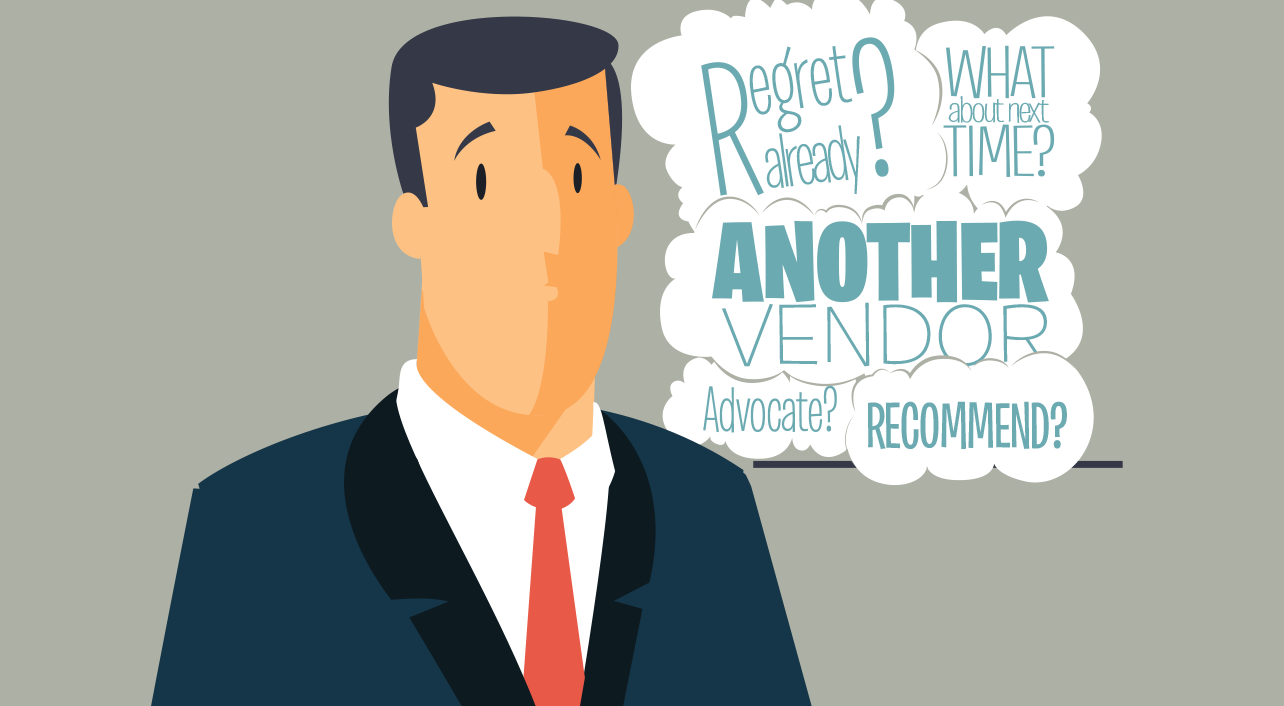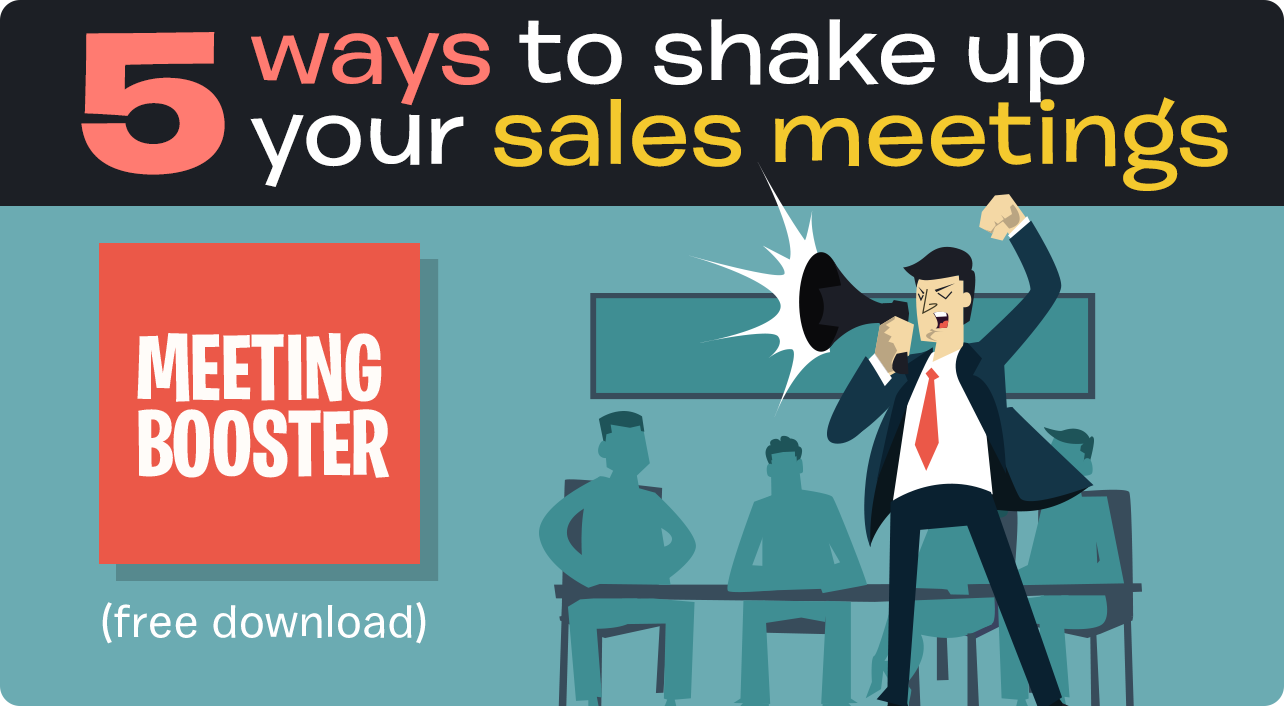- sales
- Blog post
How to mitigate the effects of buyer’s remorse
When you closed that big sale a month ago, your buyer was enthusiastic. She was eager to get your solution in place and start reaping the benefits.
But now that you’ve actually delivered, the buyer’s mood seems to have changed. You’re not getting the glowing reviews you expected. She seems less engaged, maybe even disappointed.
That’s a problem, because you were hoping to leverage this sale into a long-term relationship. Now you wonder: Is she regretting her purchase? Will she be as eager to buy from you next time? Will another vendor’s offer seem more new and exciting?
And why did it happen? Did you do something to blow the opportunity?
Reward and response
Chances are strong that you didn’t. Salespeople don’t cause buyer’s remorse. There are deep psychological reasons why buyers experience a letdown after making a purchase. And these reasons are about how the brain responds to rewards, not the salesperson’s behavior.
This response is more complicated than you might think. You’d think it’s the reward itself that makes us happy, whether it’s an ice cream cone, a well-earned vacation – or in the case of a sale, the product or service that promises to make our lives better. But in fact, the anticipation of a reward is often more pleasurable than the reward itself.
Let’s look at what happens inside a brain that’s expecting something good to happen.
It’s about expectations
Researchers at Stanford University conducted an experiment in which people played video games for monetary rewards. As they played, their brains were scanned by an fMRI machine, which measures activity in various regions of the brain.
The researchers found that the brain’s dopamine centers – the parts that govern feelings of pleasure — were activated more in anticipation of the rewards than when these rewards were received. Other experiments show similar results. For example, in studies of monkeys who had been trained to expect a sweet treat, dopamine levels spiked before the monkeys got the treat – when they knew it was coming but hadn’t received it yet.
Such experiments suggest that expecting the reward is often more pleasurable than the reward itself — that we enjoy that ice cream cone more before we bite into it, and get more pleasure from thinking about our next vacation than from actually taking it.
Countermeasures
What does this effect mean for your sales, even if you’re not selling dopamine-producing items like vacations or sports cars? It means that in almost all cases, your buyers’ enthusiasm is likely to be highest before they take possession of whatever it is they bought.
They have a problem that needs solving or an opportunity they want to seize, and they can’t wait for your solution to start paying dividends. But no product is perfect. And after the sale, reality sets in and customers start to feel the emotional slump that goes by the name of buyer’s remorse.
You can’t entirely avoid buyer’s remorse, but you can do several things to cope with it:
- Recognize that buyers may feel an after-sale letdown. It doesn’t mean they’ll stay unhappy. It’s just a consequence of how the brain works.
- Keep in mind that this may not be the best time to ask for feedback or a referral. You could inadvertently lock in negative feelings that would otherwise dissipate with time. In fact, the research implies that buyers will feel best about you and what you sell after they’ve said yes but before they take delivery.
- Look for ways to keep your buyer in a state of anticipation. Even as they’re experiencing the current benefits of your offering, get them focused on what they can look forward to. You might say something like, “Once your people have mastered the learning curve – which should take about three months – you can expect to see productivity climb rapidly.” Or, “With our new equipment in place, you’ll be spending a lot less time on maintenance and troubleshooting.”
This blog entry is adapted from the Rapid Learning module “Buyer’s remorse: Why it happens and how to manage it.” If you’re a Rapid Learning customer, you can watch the video here. If you’re not, but would like to see this video (or any of our other programs), request a demo and we’ll get you access.
The blog post and Rapid Learning video module are based in part on the following scholarly articles:
Knutson, B., et al. (2001) Dissociation of Reward Anticipation and Outcome With Event-Related fMRI. NeuroReport, 12(17): 3683-3687.
Montague, P.R., et al. (1996). A Framework for Mesencephalic Dopamine Systems Based on Predictive Hebbian Learning. J Neuroscience 16(5): 1936-1947.

Get a demo of all our training features
Connect with an expert for a one-on-one demonstration of how BTS Total Access can help develop your team.



